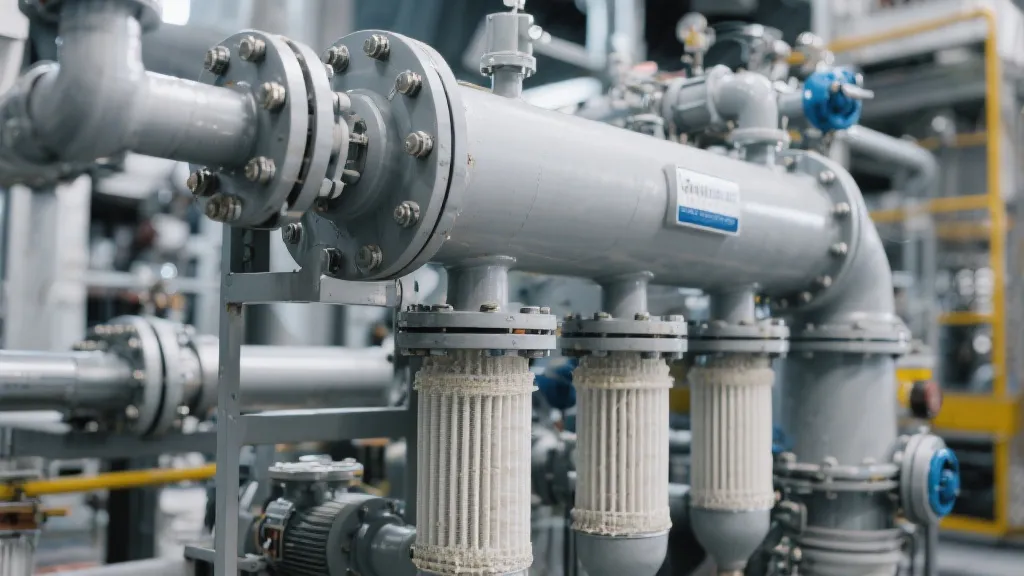Rexroth Filters are essential tools in various industries, known for their efficiency in contamination control and fluid integrity. This article delves into the advanced technology behind these filters, encompassing their applications, benefits, and impact on industrial operations, providing readers with a comprehensive understanding of their significance in maintaining efficient and reliable systems.

In the realm of industrial machinery and systems, Rexroth Filters play an indispensable role. These filters are integral components designed to remove contaminants from fluids, ensuring that systems run smoothly, efficiently, and with a lower risk of breakdowns. As industries increasingly adopt automation and sophisticated machinery, the demand for reliable filtration solutions such as Rexroth Filters has surged.
Filtration is crucial for maintaining the integrity and performance of fluid systems in industries such as manufacturing, automotive, and pharmaceuticals. Contaminants such as dirt, metal particles, and other debris can cause significant damage if not adequately filtered. This can lead to equipment failure, reduced efficiency, and expensive repairs. In sectors where precision and reliability are paramount, such as pharmaceuticals, the consequences of inadequate filtration can even jeopardize product quality and regulatory compliance.
Furthermore, the operational costs associated with equipment maintenance and downtime underscore the importance of investing in effective filtration systems. By providing consistent filtration, Rexroth Filters enhance the overall productivity of machinery and facilities, which translates to improved profitability and competitive edge in the marketplace. As machines operate at peak performance, they consume less energy, contributing to more sustainable operational practices.
Rexroth Filters employ advanced technology to capture and remove impurities from fluids. They are designed to offer maximum filtration efficiency while minimizing pressure drops, adapting to various fluid types and operating conditions. This adaptability not only ensures optimal performance but also prolongs the lifespan of industrial equipment. The filters utilize a multi-layer filter media system that provides excellent dirt-holding capacity and pressure resistance.
The working principle of Rexroth Filters typically relies on particle retention methods that include depth filtration and surface filtration. Depth filtration allows particulates to be trapped within the filter matrix, while surface filtration ensures that larger particles get captured on the filter's surface. This dual-action approach maximizes the effectiveness of the filtration process and allows for longer service intervals before the filters need to be replaced or cleaned.
Another key aspect of Rexroth Filters is their ability to incorporate various types of filter elements, such as pleated filters, spin-on filters, and cartridge filters, tailored for specific applications. This versatility makes them suitable for different industries and operational scenarios, reinforcing their status as a go-to solution for fluid filtration needs.
Rexroth Filters are used in a multitude of industries, each benefiting from their unique attributes:
Rexroth Filters are renowned for certain distinct features:
| Feature | Rexroth Filters | Standard Filters |
|---|---|---|
| Filtration Efficiency | High, up to 99% | Moderate, varies widely |
| Durability | Built for industrial use, robust design | May not withstand extreme conditions |
| Pressure Drop | Low, designed for efficiency | Higher, can affect performance |
| Cost-effectiveness | Good savings due to reduced maintenance | Lower initial cost but higher replacement rates |
In contrast, standard filters may not provide the same level of assurance in quality and performance. They often compromise on filtration efficiency and durability, leading to increased operational costs over time. Investing in Rexroth Filters means prioritizing long-term savings and reliability.
As technology progresses, the future of filtration systems, including Rexroth Filters, is expected to evolve significantly. Innovations in materials science and engineering are likely to introduce even more efficient filtration technologies, further enhancing the capabilities of these essential components. Some emerging trends include the integration of smart technology, allowing for real-time monitoring of filter performance and condition. This advancement will enable predictive maintenance strategies that can further reduce downtime and extend equipment life.
Additionally, sustainability will reign supreme in the future of filtration. As industries face increased pressure to reduce their environmental impact, the demand for filters that use eco-friendly materials and have a smaller carbon footprint will escalate. Rexroth Filters are likely to adopt these practices, resulting in products that not only perform well but also support corporate responsibility initiatives.
Numerous case studies illustrate the effectiveness of Rexroth Filters in diverse applications:
A leading automotive manufacturer implemented Rexroth Filters in their hydraulic systems. Previously, the company faced frequent equipment failures and significant downtime due to fluid contamination. After switching to Rexroth Filters, the company reported a 45% reduction in equipment downtime and considerable savings on maintenance costs. The advanced filtration technology ensured a cleaner hydraulic environment, thereby enhancing overall production efficiency.
In a pharmaceutical plant, the purity of the fluid used in processing is crucial. The introduction of Rexroth Filters allowed for reliable contaminant removal, leading to product quality improvements and compliance with stringent industry standards. The facility reported zero contamination incidents in the year following the implementation of these advanced filters, demonstrating their effectiveness in safeguarding product integrity.
An oil rig used Rexroth Filters to manage their drilling mud systems, which demand high levels of filtration to ensure safe and efficient operation. By filtering out harmful contaminants, the filters not only complied with environmental regulations but also improved the operational lifespan of critical equipment aboard the rig. This case highlighted how Rexroth filters directly contribute to both safety and efficiency in a high-stakes environment.
Rexroth Filters are essential components in modern industrial applications, providing the durability, efficiency, and effectiveness required to protect expensive systems and machinery. As industries continue to evolve, the role of filtration in maintaining operational efficiency and quality standards will only become more prominent. With the ongoing advancements in technology and growing focus on sustainability, Rexroth Filters will remain at the forefront of filtration solutions, helping businesses mitigate risks and enhance their performance in an increasingly competitive landscape.